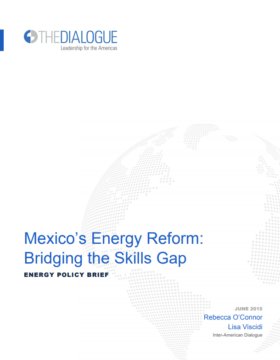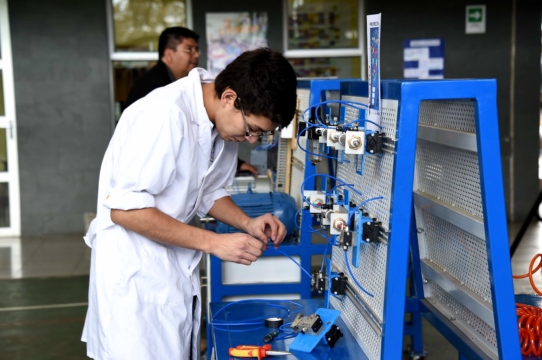
Secondary Technical & Vocational Education
What are the main benefits and challenges of secondary technical and vocational education for Latin American countries?
What are the main benefits and challenges of secondary technical and vocational education for Latin American countries?
The lack of adequate skills represents a bottleneck to productivity growth and to the ability of workers to obtain gainful employment in Latin America.
Online competency-based education (OCBE) has emerged as a viable option to help reduce the skills gap in the Americas
There is a gap between the skills that the Latin American workforce offers and the skills that companies in the region demand.
Apprenticeships are part of technical and vocational education (TVE) and combine formal education with learning in the workplace.
Post-secondary technical vocational education is primarily directed towards youth that have recently finished high school, preparing them directly for the labor market.
The lack of adequate skills represents a bottleneck to productivity growth and to the ability of workers to obtain gainful employment in Latin America.
Recognizing the growing challenges Latin American countries face in skills development, the dialogue organized a seminar on technical education and professional training.
The low skills levels of Latin America’s workforce have led to productivity issues that limit the region’s growth potential.
This study presents a guide for higher education institutions (HEIs) and institutions with non-academic training functions. The guide aims to document the current adoption of alternative credentials, the main barriers and opportunities for institutions, and finally, offer recommendations and practical lessons for their implementation.
This report, elaborated by Latin America Coalition for Teaching Excellence, studies initiatives that have strengthened teachers’ digital skills in Latin America. Specifically, it addresses the digital competency frameworks that exist in the region, teacher training experiences, and the evaluation processes implemented to measure progress in digital teaching skills.
A Latin America Advisor Q&A featuring experts’ viewpoints on the growth of technology skills and businesses in the region.
On September 8, the Education Program, together with Coursera, convened a public online event to present the findings of Coursera’s Global Skills Report and showcase new trends in the labor market.
On October 13, 2021, the Inter-American Dialogue convened the virtual panel discussion on “Youth Employment and Sustaining Latin America’s Economic Recovery. In partnership with the United Way and Aspen Institute, the Inter-American Dialogue invited panelists to discuss how to create sustainable youth employment, highlighting the need to create better tools for job readiness and new frameworks to create opportunity for young people.
Firms across Latin America are complaining about the difficulties of recruiting workers with the technical skills their businesses demand. Lack of adequate skills is becoming a bottleneck for growth in technologically complex industries, harming government efforts to increase investment in strategic sectors of the economy. In Mexico, the energy reform creates opportunities to generate new jobs and educate and train workers in specialized skillsets, but the country will also face challenges in meeting additional demand for skilled labor.
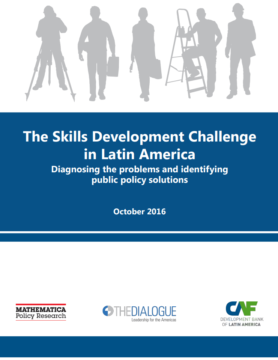



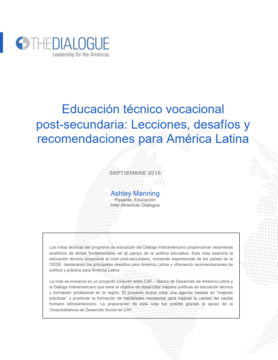
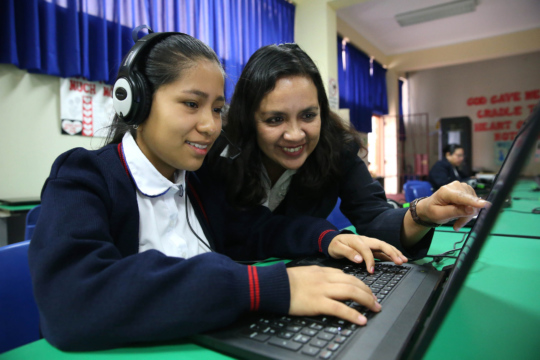 Video
Video

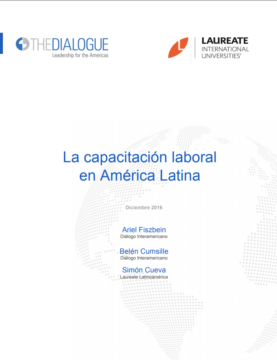

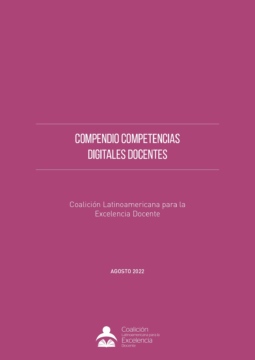

 Video
Video
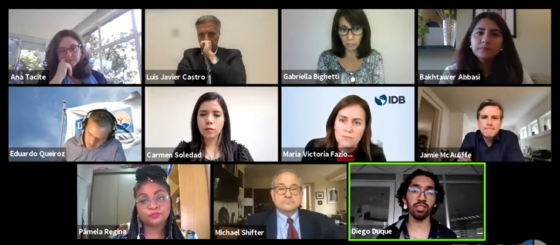 Video
Video
